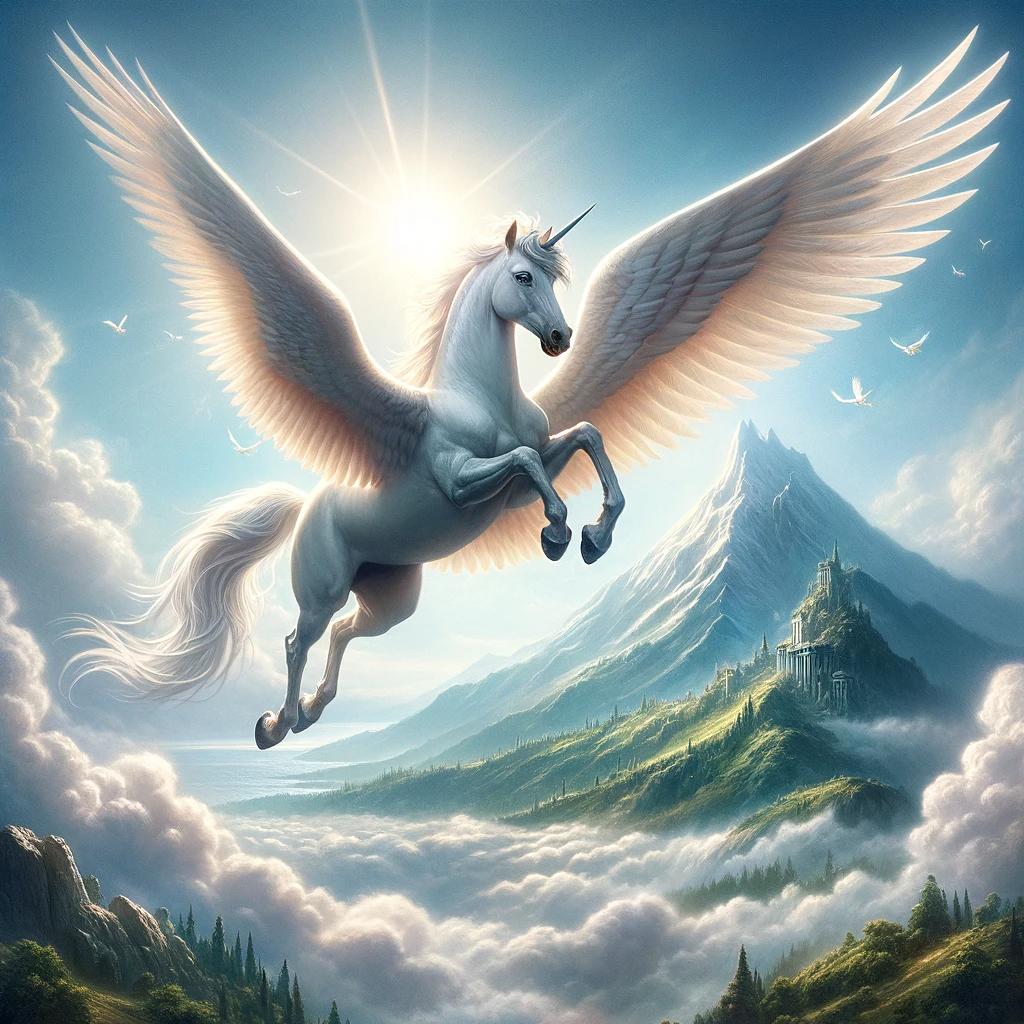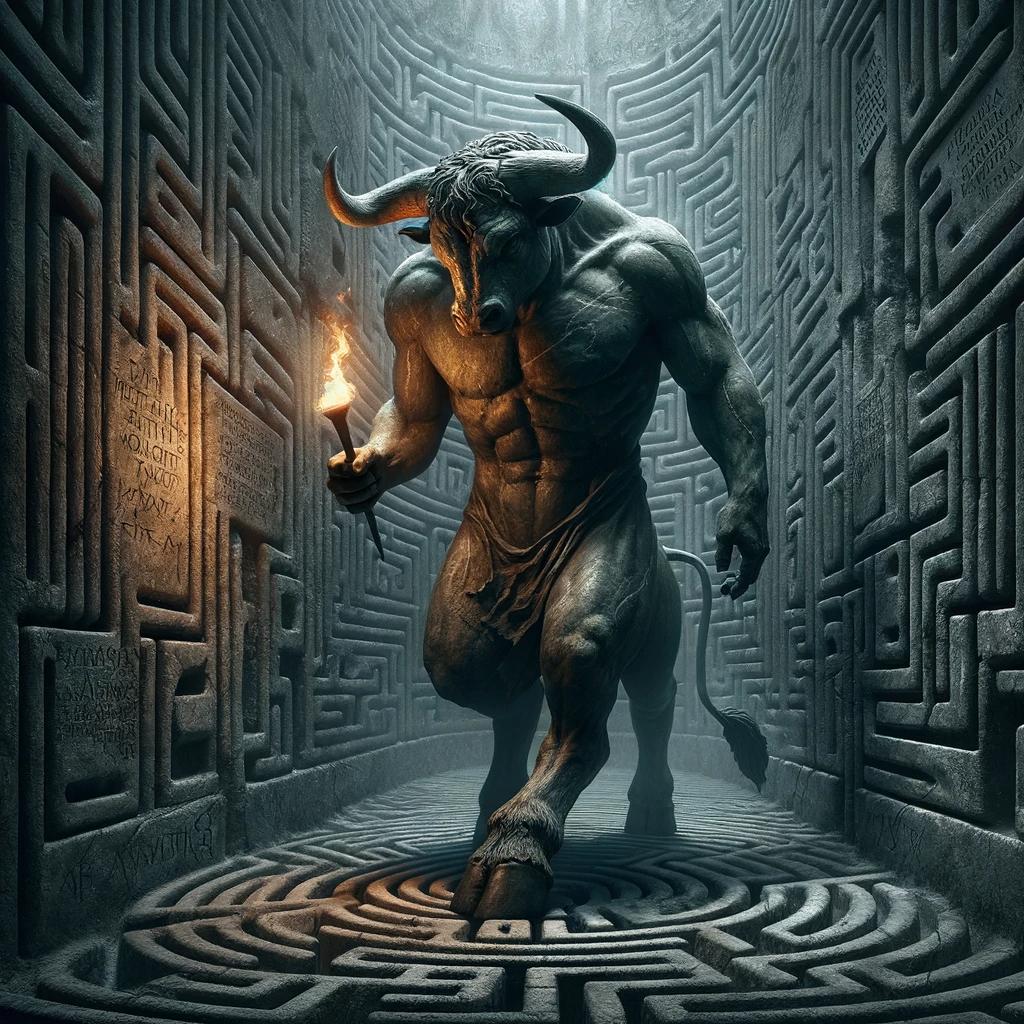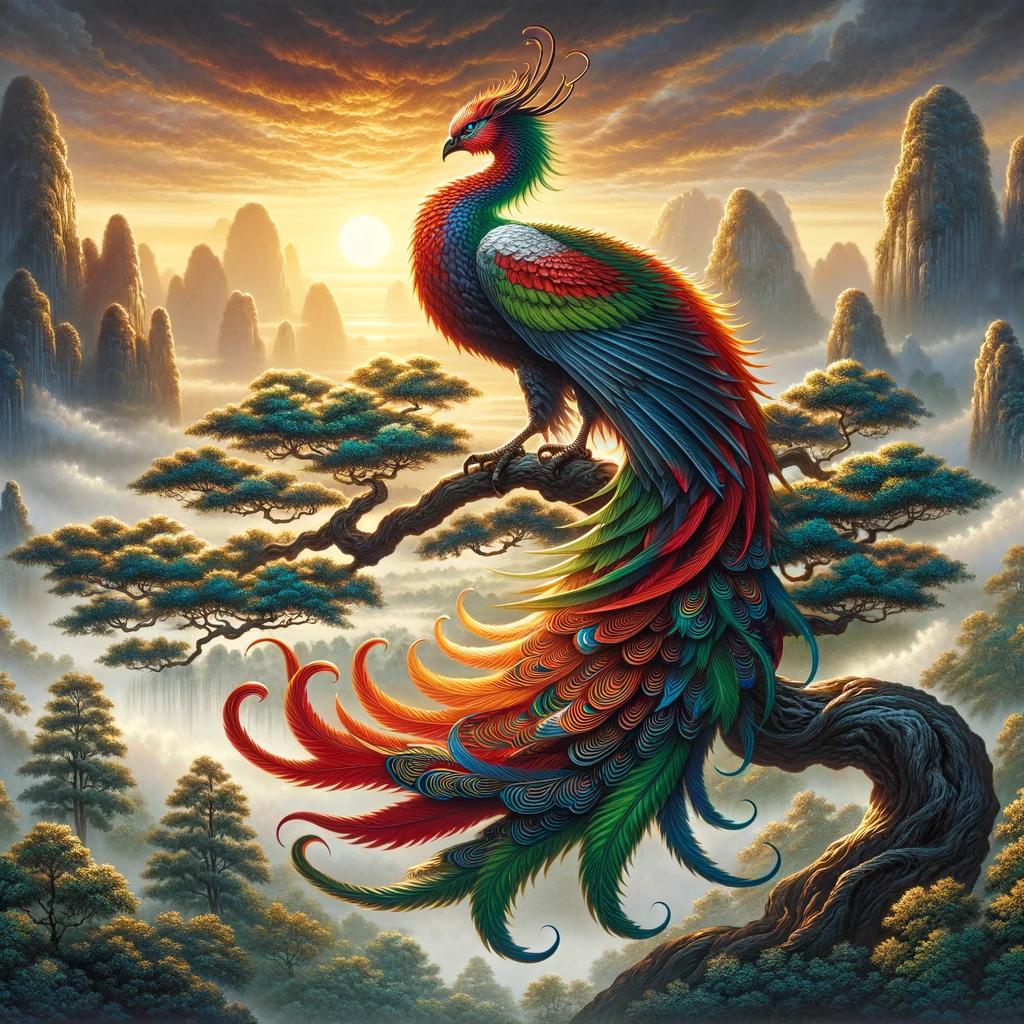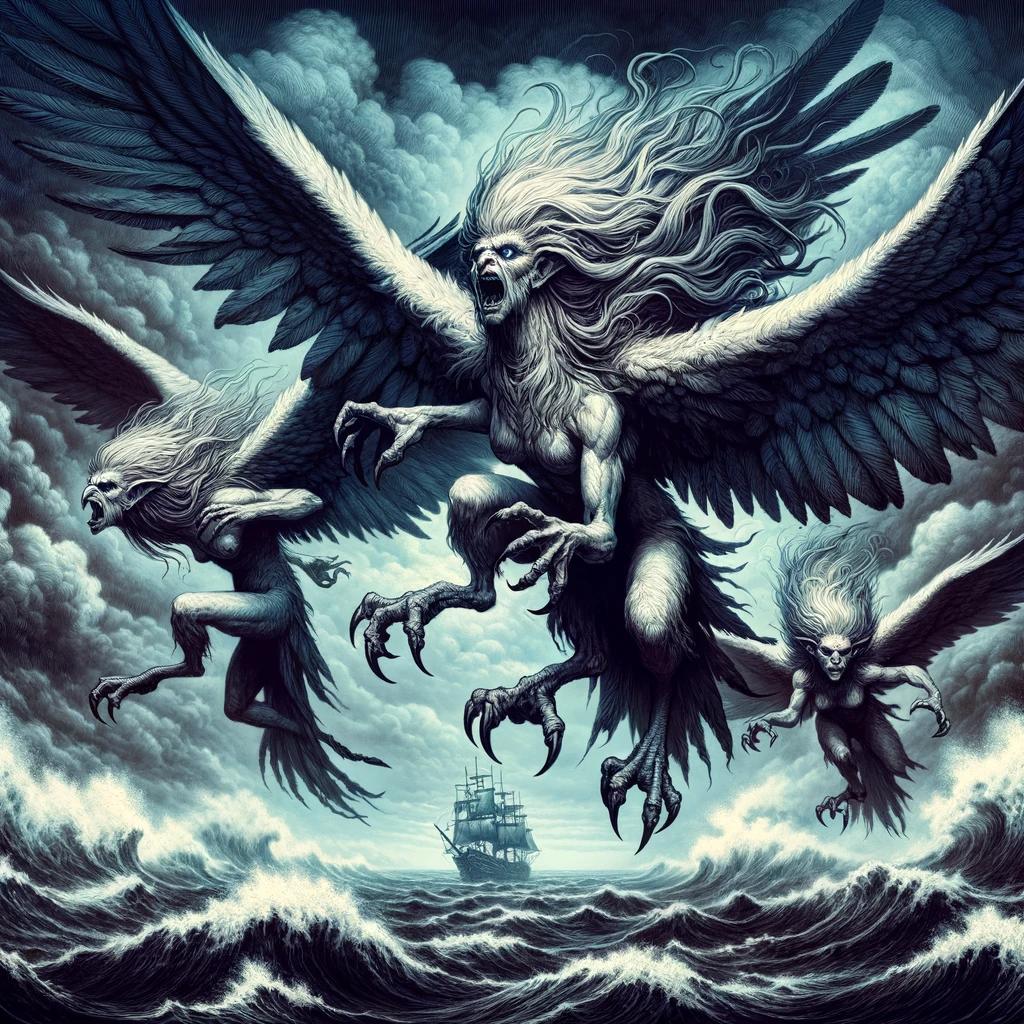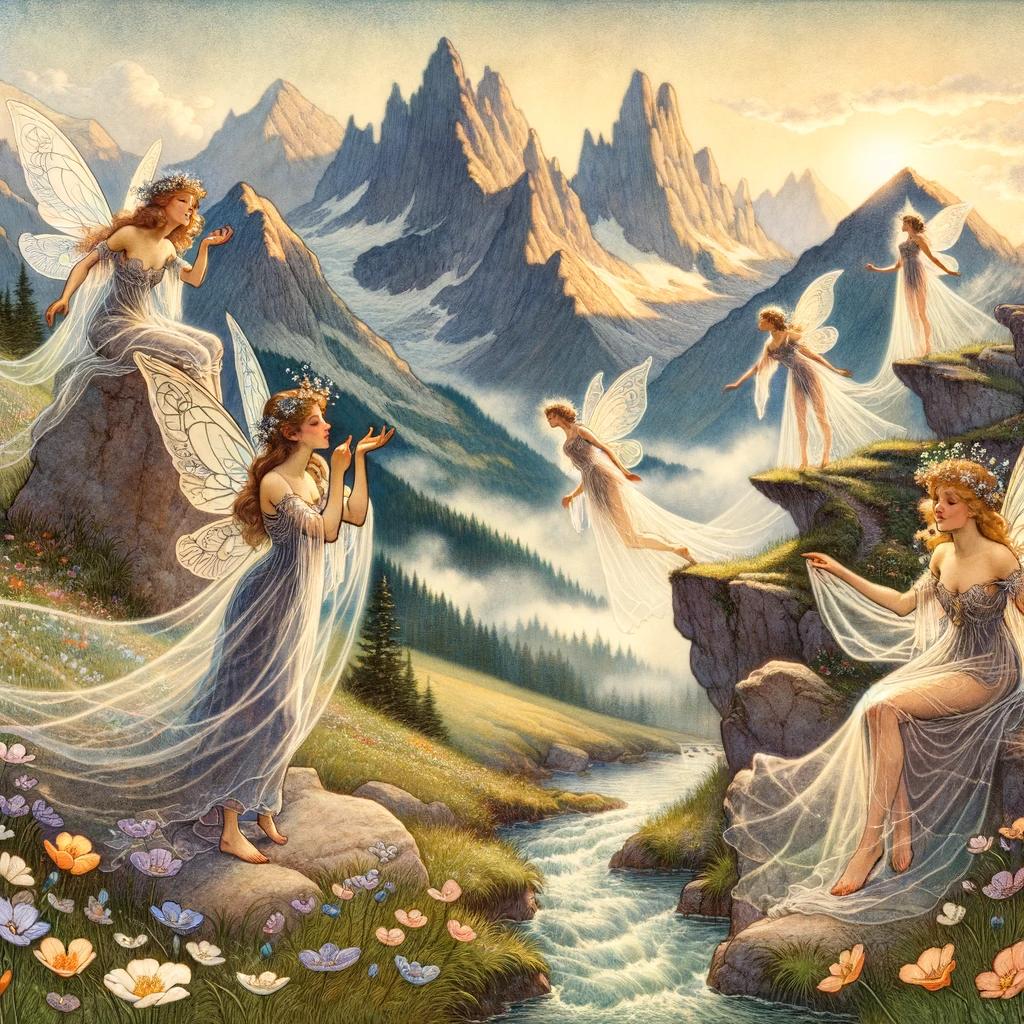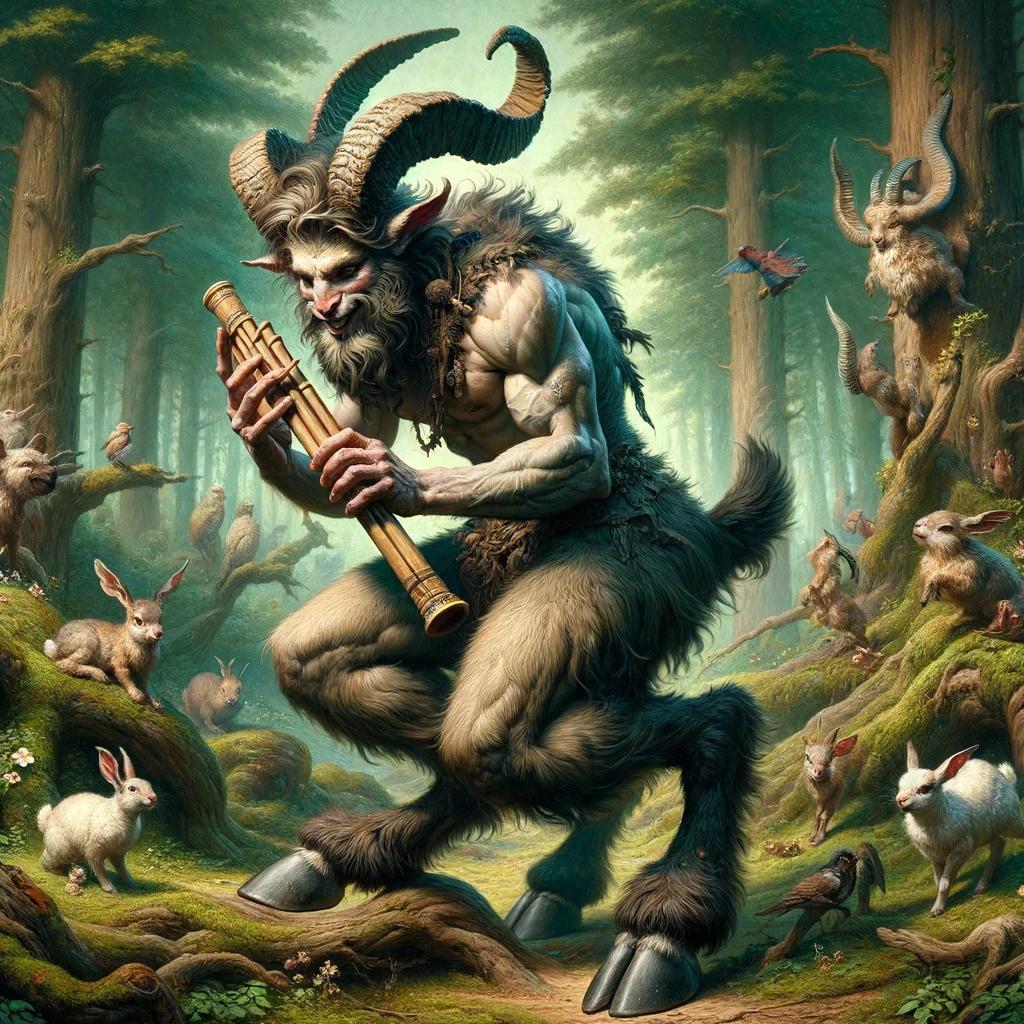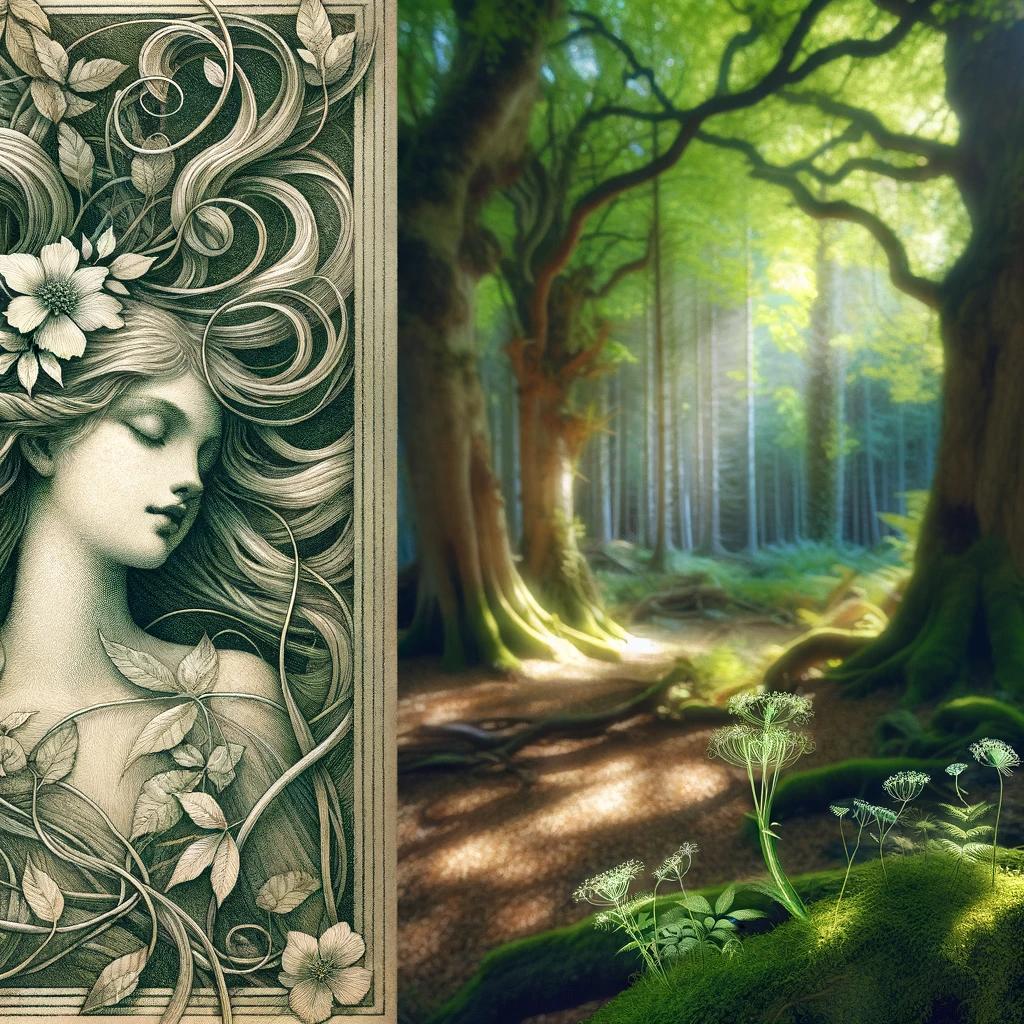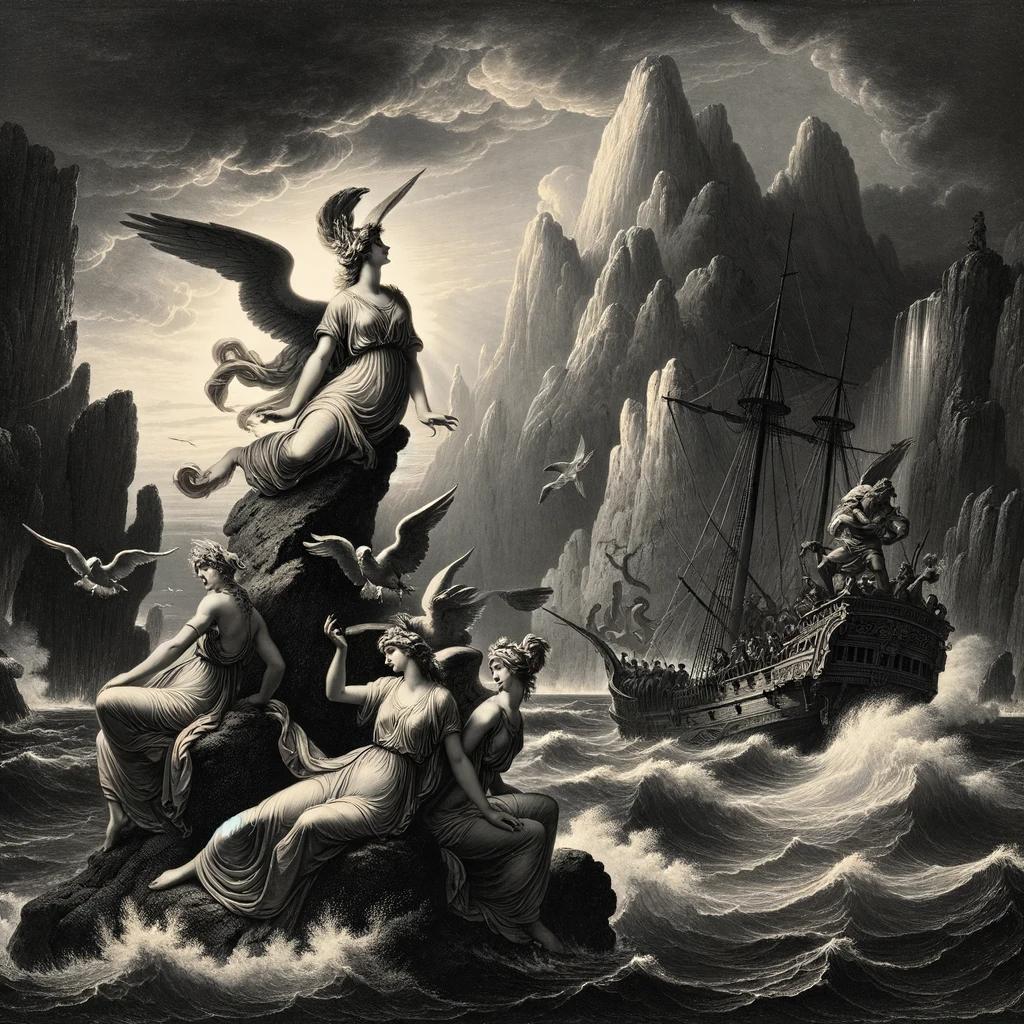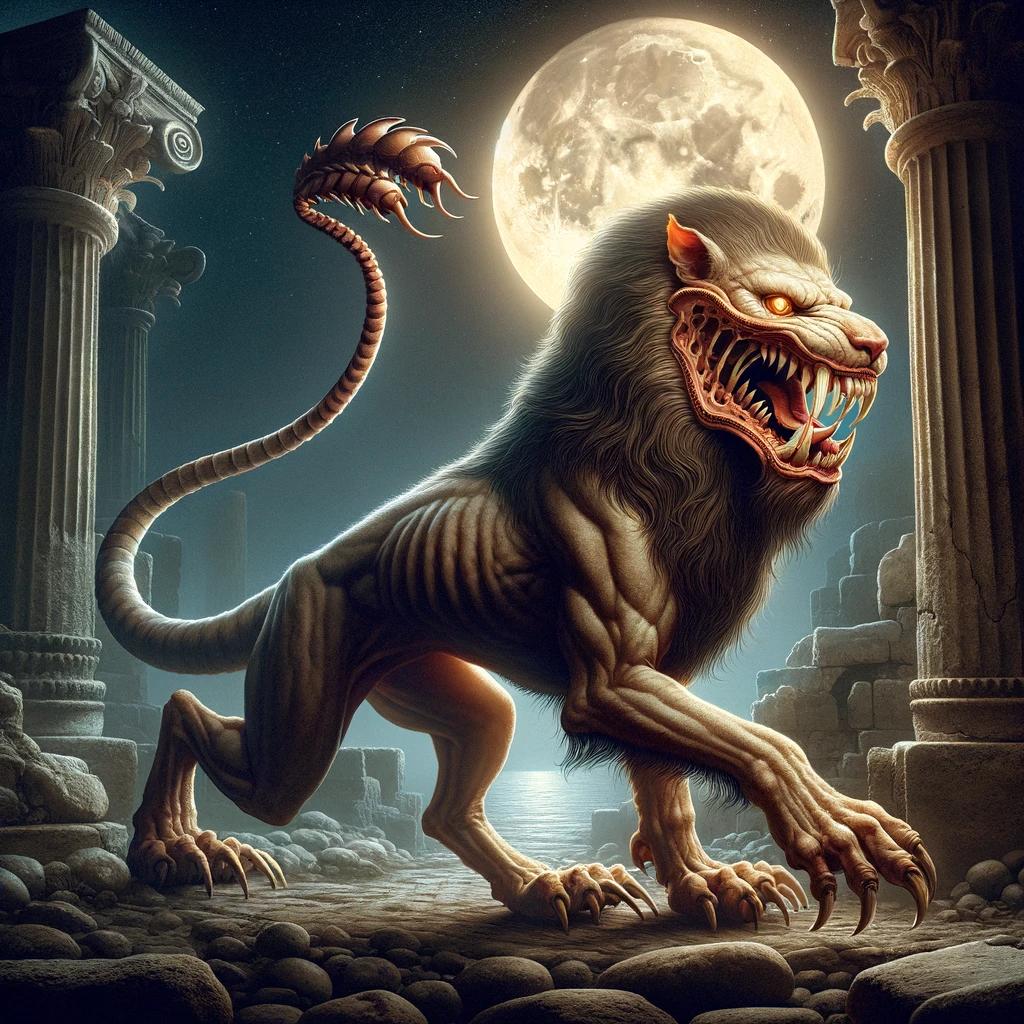Exploring the Myth of Pegasus in Greek Mythology: A Majestic Winged Horse
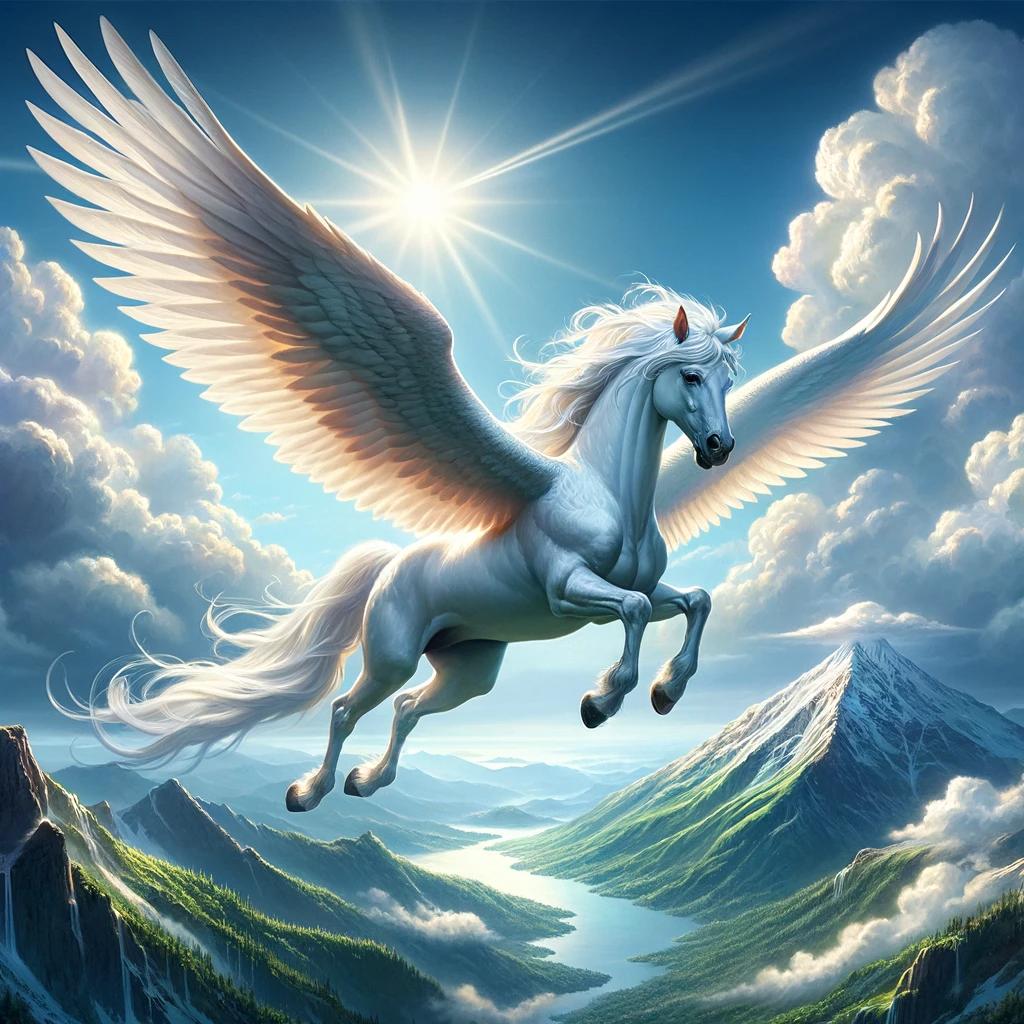
Pegasus, the iconic winged horse of Greek mythology, holds a significant place in ancient art, heraldry, and astronomy. Born from the blood of Medusa, Pegasus became the loyal companion of Bellerophon, aiding in their legendary quests.
This majestic creature is associated with various gods and heroes and symbolizes inspiration and creativity. Despite misconceptions, Pegasus continues to inspire contemporary art, literature, and popular culture. Delve into the captivating world of Pegasus as we explore its birth, exploits, and enduring significance in Greek mythology.
Pegasus: Symbolism and Representation
Pegasus, the magnificent winged horse from Greek mythology, holds deep symbolism and has been represented in various forms throughout history. From ancient Greek art and culture to heraldry and war emblems, as well as in the realm of astronomy, Pegasus has captivated human imagination for centuries.
Pegasus in Ancient Greek Art and Culture
In ancient Greece, Pegasus was a popular subject in art, representing beauty, grace, and power. Depictions of Pegasus adorned pottery, statues, and frescoes, showcasing its iconic wings and regal stature. This mythical creature served as a symbol of inspiration, freedom, and the divine connection between humans and gods in ancient Greek culture.
Pegasus in Heraldry and War Emblems
The symbolism of Pegasus transcended ancient Greek art and found its way into heraldry and war emblems. Its image was emblazoned on military standards, shields, and coats of arms, representing valor, chivalry, and triumph in battle.
Pegasus became a symbol of courage and the indomitable spirit of heroes.
Pegasus in Astronomy: The Constellation and its Stars
Pegasus is also immortalized in the night sky as a constellation. Forming a distinct large square shape, it consists of prominent stars such as Alpheratz (located in the constellation Andromeda), Markab, and Beta Pegasi.
Observers have marveled at the striking celestial representation of Pegasus, connecting the mythical horse with the vastness of the universe.
- Pegasus represented in ancient Greek art and culture
- Pegasus symbolism in heraldry and war emblems
- Pegasus as a constellation in astronomy
- Prominent stars in the Pegasus constellation: Alpheratz, Markab, and Beta Pegasi
Through its symbolism and representation across art, culture, heraldry, and astronomy, Pegasus continues to captivate our imagination and remind us of the enduring power and beauty of Greek mythology.
Pegasus’ Birth and Connection to Medusa
Pegasus, the majestic winged horse, has a fascinating connection to the legendary figure, Medusa. Within this mythical lineage, Pegasus’ birth and siblings play significant roles. Let’s delve into the captivating details surrounding Pegasus’ origin and familial ties.
The Birth of Pegasus from Medusa’s Blood
According to Greek mythology, Pegasus emerged from the blood of Medusa, the infamous Gorgon. As the hero Perseus decapitated Medusa, her blood dripped down onto the earth and transformed into the magnificent winged horse we know today.
This extraordinary birth infused Pegasus with strength, grace, and an otherworldly presence.
Pegasus’ Siblings: Crisaor and the Gorgons
Pegasus was not alone in his mythical lineage. He had a brother named Crisaor, who emerged from the same act of Medusa’s decapitation. Crisaor went on to become a significant figure in Greek mythology, associated with several notable events and figures.
In addition to Crisaor, Pegasus had two other siblings, both of whom were also Gorgons like Medusa. These fearsome creatures, named Stheno and Euryale, possessed the characteristic serpentine hair and petrifying gaze, just like their infamous sister.
While Pegasus’ siblings embody terror and danger, he represented a different aspect of mythical beauty and power.
- Pegasus, born from Medusa’s blood
- Crisaor, Pegasus’ brother
- Stheno and Euryale, Pegasus’ Gorgon siblings
Together, Pegasus and his siblings form a unique family tree, blending elements of both beauty and terror within the realm of Greek mythology.
Pegasus and Bellerophon: Their Legendary Quests
Pegasus, the magnificent winged horse, embarked on numerous epic adventures alongside his loyal companion, Bellerophon. Together, they achieved fame and conquered formidable foes, leaving an indelible mark on Greek mythology.
Bellerophon’s Friendship with Pegasus
Bellerophon’s path crossed with Pegasus when the goddess Athena and Poseidon aided him in capturing the winged horse. Recognizing Bellerophon’s noble nature, Pegasus formed an unbreakable bond with the hero.
Their friendship was characterized by trust, loyalty, and mutual respect.
The Defeat of the Chimera
One of Bellerophon and Pegasus’ most renowned feats was the defeat of the fearsome Chimera, a monstrous creature with the head of a lion, body of a goat, and tail of a serpent.
Guided by Pegasus’ aerial advantage, Bellerophon launched a valiant assault that culminated in the demise of the Chimera. This triumphant victory solidified their reputation as legendary heroes.
Pegasus’ Role in Bellerophon’s Tragic Fate
Unfortunately, Bellerophon’s hubris and ambition led him to attempt reaching Mount Olympus on the back of Pegasus, seeking to join the realm of the gods.
Zeus, enraged by the mortal’s audacity, unleashed a series of calamities. Bellerophon was thrown from Pegasus’ back, his fall resulting in either his death or a crippling injury. Pegasus, though immortal, faced the wrath of Zeus and met a similarly tragic fate.
In the shadow of their former glory, the legendary duo serves as a cautionary tale of the perils of hubris and the fragile nature of mortal ambitions.
Pegasus in Greek Mythology: Connections and References
The mythological figure of Pegasus has significant associations with various gods and heroes in Greek mythology.
These connections highlight Pegasus’ role as a divine and enigmatic creature, revered in ancient tales and revered by the gods themselves.
Pegasus’ Associations with Gods and Heroes
Pegasus holds a prominent place alongside gods and heroes, symbolizing their extraordinary power and divine connections. In Greek mythology:
- Pegasus is closely linked to Zeus, the king of the gods, who tasked Pegasus with carrying his thunderbolts and executing his will from their celestial abode atop Mount Olympus.
- Connections between Pegasus and Poseidon, the god of the sea, exist due to their shared parentage.
Poseidon, in some accounts, is believed to be Pegasus’ biological father.
- Another notable association is with Athena, the goddess of wisdom. According to the myths, it was Athena who tamed Pegasus and presented the magnificent creature to the hero Bellerophon.
- Additionally, Pegasus’ siblings, the fearsome Gorgons such as Medusa, further exemplify the horse’s lineage and connection to the divine realm.
Pegasus in the Context of Greek Mythology
Pegasus’ presence in Greek mythology extends beyond its connections to specific gods and heroes.
The mythical horse represents profound themes and notions within the rich tapestry of Greek mythology:
- Pegasus embodies the concept of transformation and rebirth, symbolizing the potent force that emerges from Medusa’s blood and Perseus’ heroic actions.
- The horse’s celestial ascent after its birth is seen as a metaphor for the intersection between the mortal and immortal realms, blurring the boundaries between heaven and earth.
- Pegasus represents the boundless possibilities of the human spirit, serving as a testament to the power of dreams, imagination, and transcendent potential.
Pegasus in Comparison to Other Winged Creatures
While there are other winged creatures in Greek mythology, Pegasus stands out with its unique characteristics and connections:
- Compared to the fearsome Chimera, which Pegasus and Bellerophon defeated together, Pegasus represents grace, elegance, and a gentler side of the supernatural realm.
- In contrast to the tragic Icarus, who flew too close to the sun, Pegasus embodies a more controlled and guided flight, representing a harmonious balance between ambition and restraint.
- When compared to the multifaceted Harpies, Pegasus’ purity and noble nature shine through, establishing it as a beloved and admired figure among both gods and mortals.
In conclusion, Pegasus’ connections and references within Greek mythology illuminate its divine associations with gods and heroes, its symbolic significance, and its distinctive nature compared to other winged creatures.
The legacy of this majestic mythical horse continues to captivate and inspire individuals, offering profound insights into the human imagination and its connection to the divine.
Pegasus: Meaning and Significance in Greek Mythology
Pegasus, the majestic winged horse of Greek mythology, holds profound meaning and plays various significant roles within the ancient tales.
From being a symbol of divine inspiration and creativity to serving as a loyal companion and a messenger of the gods, Pegasus embodies a rich tapestry of symbolism and significance.
The Symbolism of Pegasus as a Winged Horse
As a winged horse, Pegasus represents freedom, grace, and transcendence.
Its ability to soar through the skies symbolizes the human desire for spiritual elevation and the pursuit of higher aspirations. Pegasus epitomizes the untamed spirit and unrestrained imagination that drives humanity’s pursuit of dreams and ambitions.
Pegasus as a Divine Messenger and Companion
Within Greek mythology, Pegasus often serves as a trusted messenger between the gods and mortals. With its swift flight and acute perception, Pegasus acts as a conduit for divine communication.
Its presence is seen as an omen, marking important events or delivering divine guidance to heroes and seekers of truth.
Besides its role as a messenger, Pegasus also acts as a loyal and compassionate companion.
Its bond with heroes such as Bellerophon signifies the partnership between mortals and the divine, highlighting the mutual reliance between humanity and the gods in achieving great feats and overcoming challenges.
Pegasus as a Symbol of Inspiration and Creativity
Another significant aspect of Pegasus is its association with inspiration and artistic creativity. The winged horse’s presence is believed to spark the imagination and ignite the artistic fire within individuals. Pegasus embodies the muse that fuels poets, writers, and artists, inspiring them to create works of beauty and eternal significance.
Furthermore, Pegasus symbolizes the power of imagination, encouraging individuals to break free from boundaries and explore new horizons. Its legendary flights to the heavens serve as a reminder that creativity knows no limitations and that the human spirit is capable of remarkable achievements when it dares to dream and innovate.
- The winged horse represents freedom, grace, and transcendence
- Pegasus acts as a messenger between gods and mortals
- Pegasus symbolizes inspiration and artistic creativity
- Pegasus embodies the untamed spirit and unrestrained imagination
- Pegasus serves as a trusted companion to heroes
- Pegasus encourages breaking free from boundaries and exploring new horizons
In conclusion, Pegasus in Greek mythology holds significant meaning as a symbol of freedom, divine communication, inspiration, and imagination.
Its essence transcends time, reflecting the enduring human pursuit of higher ideals and the eternal quest for creative expression.
Popular Misconceptions and Modern Interpretations of Pegasus
Throughout history, the legendary creature Pegasus has captured the imagination of many individuals, leading to various misconceptions and modern interpretations. Let’s explore some of the fascinating aspects and misconceptions surrounding Pegasus in popular culture.
Misinterpretations and False Claims about Pegasus
Pegasus has fallen victim to several misinterpretations and false claims over the years. Some individuals have wrongly associated Pegasus with other winged creatures, such as unicorns or mystical birds. However, it is important to clarify that Pegasus is a distinct and unique figure in Greek mythology, distinguished by its majestic wings and equine form.
Additionally, false claims have surfaced regarding Pegasus’ abilities and characteristics, including unfounded rumors about its ability to grant wishes or possess extraordinary magical powers. While Pegasus is undoubtedly a mythical and awe-inspiring being, it is vital to separate fact from fiction when discussing its attributes.
Pegasus in Contemporary Art and Literature
Pegasus continues to captivate contemporary artists and writers, making appearances in various forms of art and literature. In paintings, sculptures, and illustrations, Pegasus is often portrayed as a symbol of freedom, grace, and imagination.
Its iconic imagery has served as inspiration for countless creative works, enchanting audiences across different mediums.
Furthermore, Pegasus frequently appears in literature, both as a central character and a symbolic presence.
Its significance as a celestial messenger and a companion to heroes resonates with writers, who incorporate Pegasus into their narratives to convey themes of adventure, bravery, and the pursuit of dreams.
Pegasus’ Influence in Popular Culture and Media
Popular culture and the media have embraced the timeless allure of Pegasus, incorporating its image and symbolism into various mediums. From movies and television shows to video games and advertising, Pegasus has become an instantly recognizable emblem of mythical wonder.
The emblematic imagery of Pegasus frequently finds its place in logos, company branding, and advertisements, symbolizing elegance, power, and the ability to soar above challenges. Its association with airborne transportation and speed has made it a popular choice for airline logos and automotive branding.
Moreover, Pegasus often serves as a unique and captivating character in the realms of fantasy and magical storytelling, enchanting audiences of all ages with its majestic presence and extraordinary abilities.
In conclusion,
Pegasus persists as a captivating figure not only in Greek mythology but also in contemporary culture and imagination.
The multitude of misconceptions and modern interpretations surrounding Pegasus only add to its mystique and enduring appeal, making it a celebrated symbol of power, freedom, and inspiration.
Pegasus in Greek Mythology: Frequently Asked Questions
In this section, we will address some common questions about Pegasus in Greek mythology:
Who were Pegasus’ parents in Greek mythology?
Pegasus was believed to be the offspring of the sea god Poseidon and the monstrous Gorgon Medusa. According to legends, Pegasus emerged from Medusa’s neck when the hero Perseus beheaded her in his quest.
What was Pegasus’ role in Greek mythology?
Pegasus played a significant role in Greek mythology. He became the loyal companion of Bellerophon, aiding him in his adventures. Pegasus is often associated with flight, carrying Bellerophon to defeat the fearsome Chimera and accomplishing other heroic feats along the way.
How was Pegasus captured by Bellerophon?
Bellerophon managed to capture Pegasus with the assistance of the goddess Athena and the god Poseidon. As the story goes, Athena gave Bellerophon a golden bridle, allowing him to tame the wild and untamed Pegasus.
This enabled Bellerophon to harness the power of the winged horse.
What happened to Pegasus and Bellerophon?
The fate of Pegasus and Bellerophon took a tragic turn. After their successful quests, Bellerophon attempted to ascend to Mount Olympus while riding Pegasus, fueled by his ambition. However, the gods were angered by this audacious act, and Zeus sent a gadfly to sting Pegasus.
The winged horse bucked, causing Bellerophon to fall to Earth. Meanwhile, Pegasus continued to the heavens, where he was transformed into a constellation.
How is Pegasus represented in different forms of art?
The representation of Pegasus in various art forms is diverse and captivating.
In ancient Greek art and culture, Pegasus was depicted on vases and sculptures, often symbolizing divine inspiration and beauty. In heraldry and war emblems, Pegasus was a powerful and majestic symbol.
In astronomy, Pegasus is recognized as a constellation, forming a great square shape in the night sky. This magnificent creature continues to inspire artists, writers, and creatives in contemporary art and literature.
.

